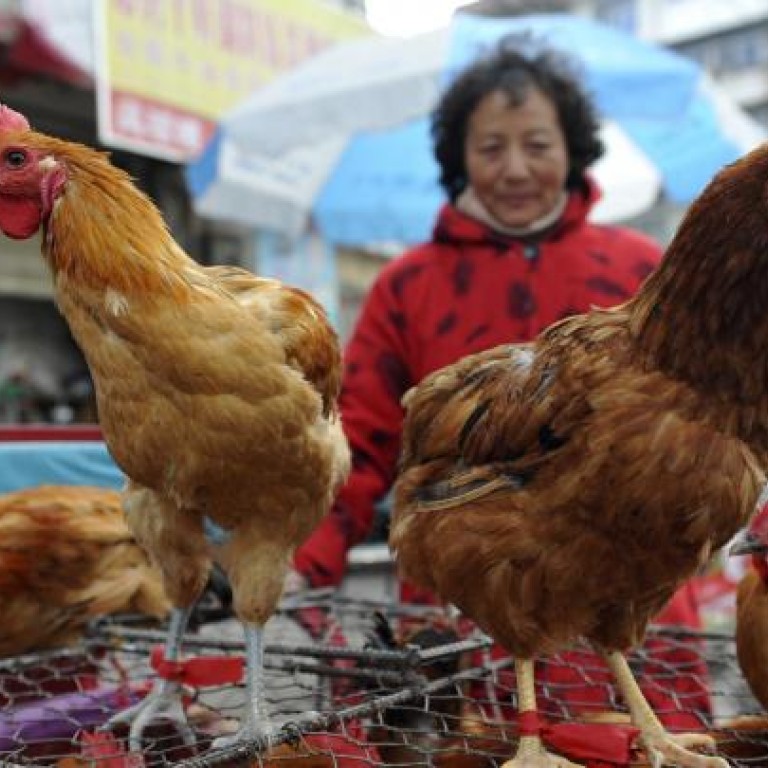
Two men die in Shanghai in first human cases of bird flu strain
Two men succumb in Shanghai within two weeks of contracting lesser-known H7N9 virus, with a woman in Anhui still in critical condition
Two mainlanders have died and a third is critically ill after they became the first reported human cases of infection by a lesser-known strain of bird flu.
The National Health and Family Planning Commission said yesterday it wasn't clear how the three became infected, but there was no evidence of human-to-human transmission.
The commission said the two men - aged 87 and 27 - died in Shanghai after becoming infected with the H7N9 strain of the avian influenza virus.
The 87-year-old died on March 4 and the 27-year-old on March 10, both within two weeks of falling ill, the commission said.
The woman, 35, of Chuzhou, Anhui province, was said to be in a critical condition. She fell ill on March 9 after coming into contact with poultry.
The victims showed symptoms of fever and coughing and later developed severe pneumonia and breathing difficulties.
Experts say the virus does not seem to be highly contagious but appears more deadly than other strains of the H7 virus that have previously infected humans.
There was no indication the three contracted the disease from each other and no signs of H7N9 infection among the 88 people who had closest contact with them, the medical agency said.
However, two relatives of the 87-year-old victim developed pneumonia around the same time he did. Their diagnoses have yet to be confirmed. One of them - his 55-year-old son - has died.
University of Hong Kong's Centre of Infection president Dr Ho Pak-leung said H7N9 infections seen in poultry were usually mild. "This time it has caused deaths and critical conditions, even in young patients. This shows that there is a chance of virus mutation," he said.
But Guangdong Health Department spokesman Feng Shaomin said the department saw no need to launch emergency measures among tourists ahead of the Ching Ming Festival.
Influenza diagnosis tests in Hong Kong target the more common swine influenza and the H5N1 avian influenza. Ho said H7 viruses were less common in Asia and adjustments to the tests may now be needed.
H7N9 is a statutorily notifiable infectious disease in Hong Kong. There is no vaccine.
Some Shanghai residents and internet users were angered at the delay in disclosing the three cases. But Ho said the delay was understandable as time was needed to identify the virus.
Hong Kong's Centre for Health Protection said it was maintaining close contact with mainland health authorities and reminded the public to observe personal hygiene.
The World Health Organisation said it was "closely monitoring the situation". More than 360 confirmed human deaths from H5N1 had been reported globally since 2003, it said.

